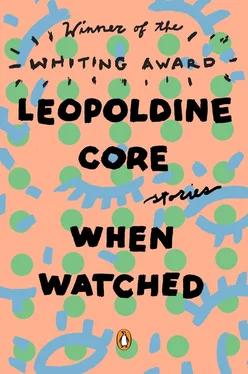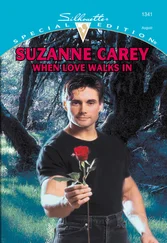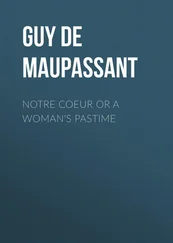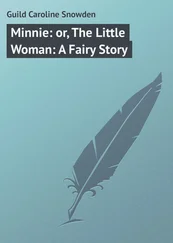“Please,” Miranda said. She was crying. “Will you please just sit down.”
Drew said nothing. After a moment he sat on the couch and sighed.
“Do you wanna lie down with me?” Miranda asked, wiping the tears from her eyes.
“What the fuck?” Drew looked appalled. But still he followed Miranda to her bed and they lay down staring at each other, the tangy stink of Drew’s clothes filling the air between their faces. Strangely Miranda liked it.
• • •
Hours later they were both naked under a scratchy blue blanket, passing a cigarette back and forth between them, a soft breeze pushing through the window.
“Did you always know you were a man?” Miranda asked. “I mean when you were younger.”
“Well.” Drew took a long, reflective drag. “I knew I was different but I didn’t know exactly what to call it — I just knew that I hated my name.”
“What was your name?”
“Gloria.”
“No.”
“Yes.” Drew shook his head. “So wrong, right?”
Miranda nodded. “You are the furthest thing from a Gloria.”
“Thank you,” Drew smiled. He handed Miranda the cigarette and she took a long suck.
“So I renamed myself,” Drew said. “At age six.”
“You named yourself Drew?”
“Drew came later. As a child I was Daniel.”
Miranda stared. “Your parents allowed that?”
“I had a single mother. She was very encouraging.”
“That’s incredible,” Miranda said. “This was the fifties, right?”
“Yeah.”
Miranda wanted to ask so many questions. She was smoking like a fiend.
“Look at you,” Drew laughed.
“I know.” Miranda smiled, handing the cigarette back.
“A name is all fantasy, you know?” Drew puffed thoughtfully, then flicked the cigarette out the window. “Why should anyone control that fantasy but you?”
Miranda smiled. She thought of other names besides Miranda. Allison, Jennifer, Betty, Veronic—
“I remember when I took baths as a kid I would stare at myself in the faucet — it made my nose look big — which I liked. I looked more like a man.” Drew scratched his jaw, staring into darkness. “Man isn’t really the word — but I looked more like myself.”
Miranda nodded, though she didn’t understand.
“I don’t believe in gender as a binary regime —two categories with the whole human race crammed in. But it’s a lot less disturbing for me to be called sir than ma’am ,” he said, warping the word ma’am with contempt. “So that’s how I live.”
“As sir.”
Drew smiled. “Yeah, except no one actually calls me sir. They say man or mister. Or they say nothing.” He paused. “Part of being trans is that language fails you.” He ran his fingers through his hair. “All I ever wanted was to be seen as the person I am. And that person isn’t male or female.”
Miranda smiled. She had never been so turned on in her entire life. She sat up and lit another cigarette, then leaned against the wall taking long drags, her face obscured by darkness.
“What is it you do,” Drew asked, “for money?”
“I wait tables. But really I’m a writer,” Miranda said.
“Seriously?”
Miranda nodded. “What’s that look for?”
“Nothing. I just — I didn’t know I was hanging out with a camera.”
They both laughed. Then Miranda started coughing.
“Jesus. How much do you smoke?” Drew asked.
“A lot.”
“It’s funny that you smoke lights,” he said. “I mean there’s no point. You suck em so hard.”
“I know,” Miranda said with shame, stubbing the cigarette out on the window ledge. “I’ve tried to stop. But time passes incredibly slowly without cigarettes. A day goes on for weeks .” She began fondling her hair. “I can’t deal with that kind of time.”
Drew smiled. He reached up and felt around for Miranda’s breast. “Your heart ,” he said.
“What?”
“It’s about ready to pop out of your chest.”
“Stop it. You’re scaring me.”
“Sorry. I’m really protective with people. With everyone but myself, that is.”
A car alarm began wailing in the distance and Miranda shut the window. Drew stared at her. His face was lit now by moonlight. “Have you published anything?” he asked.
Miranda shook her head. She was a little devastated by the question. “No. I do try though,” she said. “Whenever I write a good story, I try to find a home for it.” She sighed. “But it always winds up an orphan. Then I write something else.”
“That would be a good book title though. Orphans ,” Drew said.
“It would .” Miranda switched on the gooseneck lamp by the bed and wrote ORPHANS on a yellow Post-it. “Do you mind if I use that?”
“Not at all.”
“If I wrote a story about you — I mean — about us , that’s what I’d call it.”
Drew seemed to like this idea. “How would you describe me?”
“I don’t know. I would say you kind of changed reality for me.”
Drew tipped his head. “Explain.”
“Well you make it seem like everyone has their own gender.”
“That’s good,” Drew said, his eyes marked with pleasure. “Because everyone does.”
He is sitting at the kitchen table, staring hard at it. His mother just called and he’s replaying the conversation in his mind. She said, “Shirley’s dead.” Shirley is his sister. Was. And talking to his mother was not like talking to an actual person. It was like turning on the radio for a minute. Because she makes herself a stranger. She speaks in a flat and even way, like she was raised by machines. And he is not surprised that she is this same demented ghost on the day of her daughter’s death. He is even a little comforted because he’s a demented ghost too.
So this is my reaction, he thinks. I feel nothing. It occurs to him that he is very dirty. He’s been wearing the same shirt and underwear for two days. He was dirty before he got the call so it’s no excuse. And the thought of showering or even changing his underwear feels impossible, like he would upset the delicate ecosystem under his clothes.
What surprises him is that he is not surprised. Shirley even sounds like the name of a dead person, he thinks. He almost laughs.
She had been in medical school and dropped out. She decided to become an interior decorator and then decided not to. She liked to sing but she could only sing drunk. Ambivalence is a low life-force, he thinks. She didn’t even like being drunk. He remembers her crawling over to him at a Christmas party and saying, “I need help.” She was laughing though, which disturbed him. “Stop laughing,” he said, taking her by the arm.
Then he realized she was crying and his face closed up. “Stop it,” he said and his recoiling only made her cry harder. He remembers her splotchy face before she threw it down onto his lap. He feels her particular weight and his eyes fill with anger, then awe. She will never cry again, he thinks.
He leaves the kitchen and sits in a big navy cushioned chair. The television is on and it looks like a crime drama is playing. There are two faces having a serious conversation. The actors make small ugly expressions the way normal people do in pain and it seems a little obscene, like they’re making fun of tragedy. He turns it off.
He wonders when he will die in relation to all his friends. Will I be the last one standing? Or is Shirley prelude to the surprising event of my death next week? He imagines a group of people discussing the strangeness of their concurrent deaths over coffee.
Читать дальше












